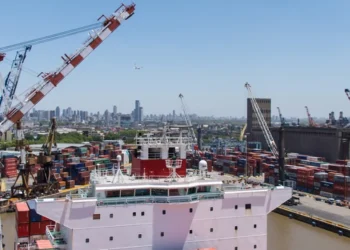Dr. Kwadwo Opoku has intimated that Ghana has relied too much on monetary policy tools by the Bank of Ghana to fight inflation in the country.
According to him, Ghana’s inflationary pressures do not always emanate from excess liquidity in the system but also from supply constraints.
“I believe that inflation is not always a monetary phenomenon. I’m thinking that the way the Central Bank is fighting inflation with monetary policy is not the best. They are overdoing it. There is no way you can reduce inflation if there is shortage of food, even if there is no money in the system.
“So, it is time that we look at the supply side and look at how it can help, not only concentrating on the monetary policy. Of course, the bank, it is not its mandate to look into the supply side issue. The supply side issue is supposed to be undertaken by fiscal policy”.
Dr. Kwadwo Opoku
The Economist and Research Fellow at the Centre for Social Policy Studies (CSPS), University of Ghana, Legon, stated that since food constitutes one of the major drivers of inflation in the country, the government should continue to channel its resources into the production and storage of staple foods to ensure constant supply.

Food inflation was 13.1% in November 2021, higher than the 11.5% recorded in October and the average of the previous 12 months of 10.4%. Food’s contribution to total inflation also increased from 44.9% in October 2021 to 47.7% in November 2021. As such, Dr. Opoku urged the government to scale up efforts to complement what the central Bank is currently doing to contain the inflationary pressures.
BoG not to blame
Even though the Economist believes the Central Bank is overusing monetary policy to tackle the rising inflation in the country, he noted that the Bank of Ghana is not to be blamed for this “because we push everything about inflation to the bank, they also always try to tackle it”. The BoG, citing inflationary risks, hiked its policy rate to 14.5% in its November meetings from the 13.5%.

Dr. Opoku was commenting on the latest CPI released by the Ghana Statistical Service (GSS) which showed that year-on-year inflation has risen for the sixth consecutive month to 12.2% in November 2021, up from 11.0% in October. According to the Government Statistician, Professor Samuel Annim Kobina, the rate recorded in November is the highest since the rebasing was done in August 2019.
Despite the risks of the rising inflation, the CSPS Research Fellow told The Vaultz News that “I’m not surprised” with the way inflation is galloping. He pointed out that the instability of the Cedi is one of the factors that is contributing to inflationary pressures, especially foreign inflation which rose to 9.8% in November, up from 8.8% in October.
According to Opoku, the Bank of Ghana is also not in a better position to make the kind of interventions needed in the foreign exchange market because “we were not able to raise enough resources from the international market” this year. This, he said, “will definitely affect the exchange rate and therefore, import prices”.
Dr. Opoku stated that the pace at which inflation is rising for months now, there is no way the government is going to achieve its yearly inflation target of 8.0% for the 2021 fiscal year. More especially, when average inflation for the first 11 months of the year was 9.7%.























